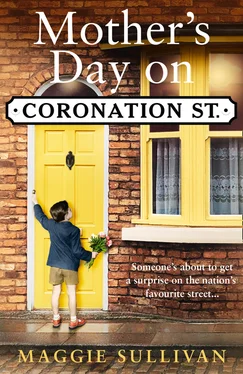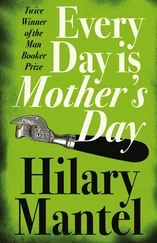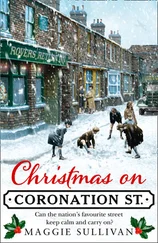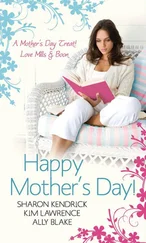Who would have dreamt that rationing would have become a central and essential part of their everyday lives? Nowadays ration books were crucial for daily living, and shortages and deprivation were the major topics of conversation on the street. Not only were certain foods scarce, but supplies of such basic commodities as clothing, coal, and soap were also becoming difficult to come by, even with the requisite number of coupons. There was little petrol available to fuel the few cars that were on the road, and the scarcity of goods was becoming more widespread each month as different items were added to the list of things that were unavailable or in limited supply. More things were being rationed and restricted items had become even more stringently regulated. Sometimes Elsie Foyle, who ran the corner shop, tipped off the registered customers who shopped with her regularly if she knew something was likely to become scarce, and Annie had been persuaded to buy a few extra tins of powdered eggs, sardines and pilchards before they disappeared altogether from the shelves. However, worrying that they might be considered to be black market items, she made a strict rule that she would never eat any of them herself but reasoned that she had the health of two young, growing children to consider.
Annie was also affected when stocks of the beer she had on tap were running low. She felt a blush creep to her cheeks as memories flashed through her mind of the dreadful and embarrassing time she had had shortly after Jack had gone away to fight for his country. For a brief period the pumps at the Rovers had run dry. She had learned to manage by cutting down on the opening hours from time to time, or even reducing the strength of the beer. On nights when they were not so busy she would call time early, in order to conserve her stocks, and on occasion would open a little later than usual. She had heard it was not uncommon for pubs to run dry all over the country, but Annie was determined to do everything she could to make sure she didn’t have to suffer the ignominy of running a public house that didn’t have enough beer for its regular customers.
In her thirty-two years Annie had learned how to handle whatever situations she was faced with in life and she had become nothing if not adaptable to her current circumstances. What she did worry about, however, was not about her life now, but about what life would be like for her two young children if they grew up knowing nothing but a state of siege and war. She feared for their future and she wasn’t the only one to think like that. One of the main topics of conversation at the bar each night was customers complaining about the difficulties of living with uncertainty; the uncertainty of not knowing what the future might hold.
Annie knew what that was like too. She could never forget the dreadful times that had followed the dramatic downturn of her family’s fortunes when she was young and how she had grown used to not knowing what might happen from one moment to the next. She tried hard not to look back, but sometimes it was impossible to avoid the vivid memories and the stinging feelings of humiliation they still evoked. Her life had turned out to be very different from what she had once imagined, and she was determined to do all in her power to ensure her children didn’t have to suffer the same plight.
When she woke, Annie lay still for a few moments, gathering her thoughts and unsuccessfully trying to catch hold of the remnants of a dream that was floating somewhere at the back of her mind. Gradually, as the ghost-like images disappeared, she became aware of the buzz of conversation that was wafting up from the public bar below. It sounded busy down there, as it had on previous nights, and yet thankfully they seemed to be managing without her. If they weren’t, no one had said so. She didn’t move and remained with her eyes closed for quite some time, content in the knowledge that the pub was in good hands. She smiled with satisfaction each time she heard the ping of the till drawer opening and closing.
Lottie Kemp, although several years younger than Annie, was one of her closest friends, and to Annie’s delight she had offered to lend a hand behind the bar in the evenings during Annie’s absence. As she might have expected, Lottie had proved to be a tower of strength and was totally trustworthy to look after the takings. Sally Todd, who lived on Coronation Street at number 9, could also be trusted as she had worked in the bar on and off for many years and when she offered to work a regular afternoon shift during the busy times, Annie was delighted. It was good to have such treasured and valued friends at times like this. It was just a shame that, before she took ill, the new barmaid she had hired had felt the need, after working in the bar for only a few months, to join her younger siblings who had been evacuated to the country. A replacement was something she would have to think about as soon as she was well.
Annie pulled the feathery eiderdown up to her chest, glad she had not been persuaded to change her warm winceyette nightdress for the pink lawn cotton one, even though it was prettier. The calendar might be registering that it was officially spring but there was still a definite chill in the March air.
‘Would you like me to plump the cushions for you so you can sit up and drink this?’ Lottie broke into her reveries when she suddenly appeared at the bedroom door, steam rising from the delicate china cup and saucer she was balancing in her hand.
Now she’s dressed sensibly for working behind a bar, Annie thought. She liked her staff to look neat and Lottie was wearing a plaid pinafore dress and a fine wool jumper, with her dark hair scraped back into a tidy French pleat.
‘I wasn’t sure if you’d be up,’ Lottie said, beaming, her rounded cheeks spotted pink, ‘but I thought you might like this.’ She crossed the room to the other side of the bed so that she could put the tea down on the bedside table by the window but she didn’t get that far; all of a sudden there was a clatter and a bang and the bedroom door was thrust back on its hinges. Annie lifted her head in alarm, uncertain what had happened. For a moment she couldn’t see anybody as she struggled to sit up, only Lottie ineffectually trying to mop up the spilled tea from the satin eiderdown cover with her pocket handkerchief. Then Annie sighed with relief.
‘Gosh, darling, you gave Mummy such a fright,’ she said, realizing it was three-year-old Billy who had crashed into the room. His fair hair was standing up in spikes and he looked like he had just crawled out of bed.
‘Where’s Joanie?’ he demanded. ‘I can’t find her.’ He ran his hands in exasperation over his hair with the gesture of an adult and Annie couldn’t help smiling.
‘Have you lost her? Or is she hiding?’ Annie asked, humouring him.
‘She’s hiding, but where is she? Doesn’t she know she can’t escape?’ He threw open the wardrobe doors and the doors of the tallboy, not bothering to close them again. He even pulled out the dressing-table drawers and left them half on the floor. Then he knocked over the wicker chair, heedless of the clothes that had been neatly folded on the seat, and finally he bent down to peer under the bed, flinging Annie’s slippers and a pair of shoes out across the landing. And all the time he was shouting, ‘Where are you, silly sister? You’ll be sorry, Joanie Pony, if you don’t tell me where you are. And when Daddy comes home I’ll make him send you back to wherever it was you came from.’
Annie laughed when he said that. ‘You’re the silly Billy,’ she said fondly. ‘She is only two years old after all, and you do know, darling, that the whole point of hide-and-seek is for you to go and look for her? There’s not much point in her telling you where she is. Where’s the fun in that?’
Читать дальше











